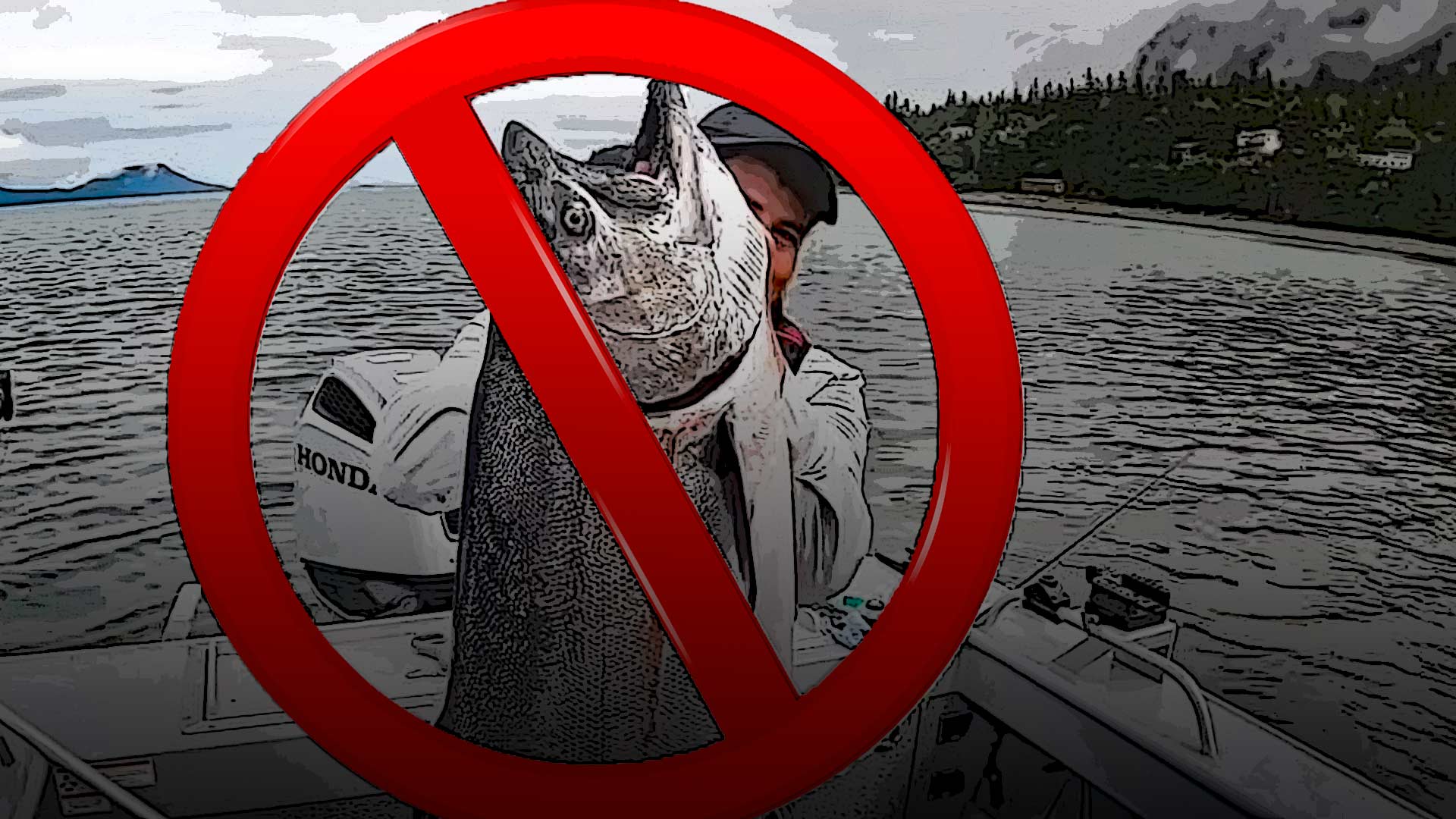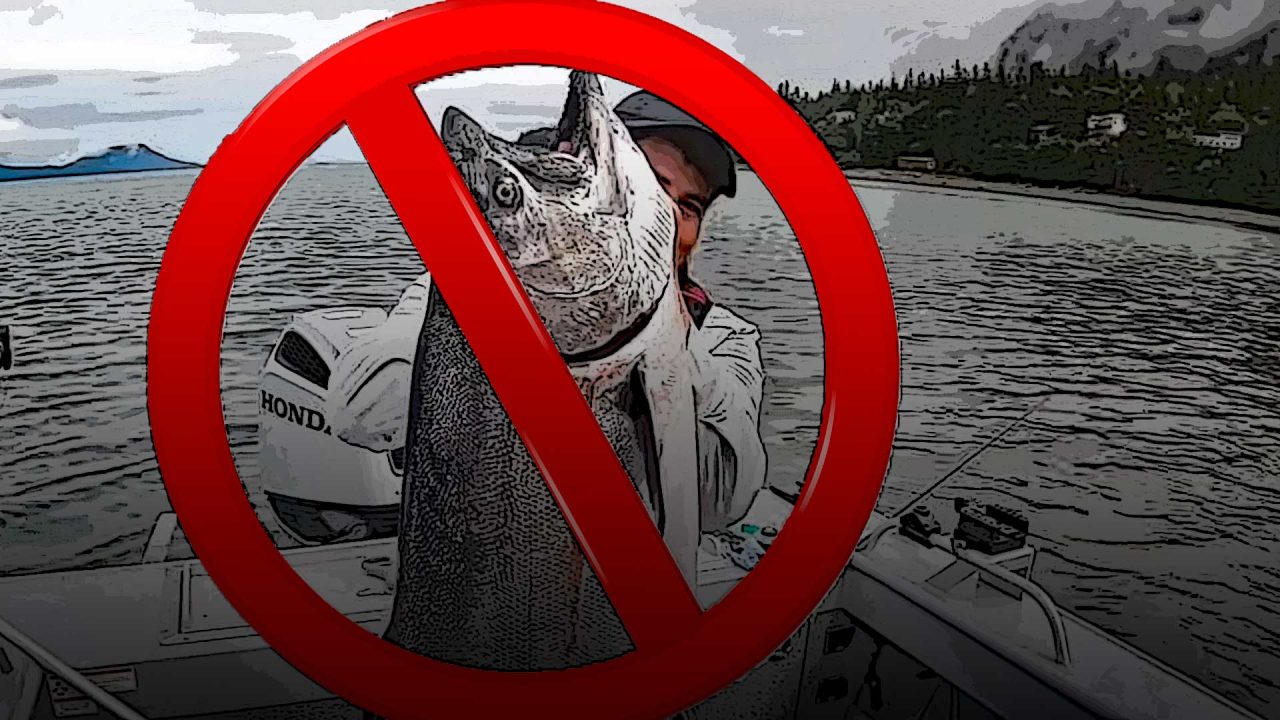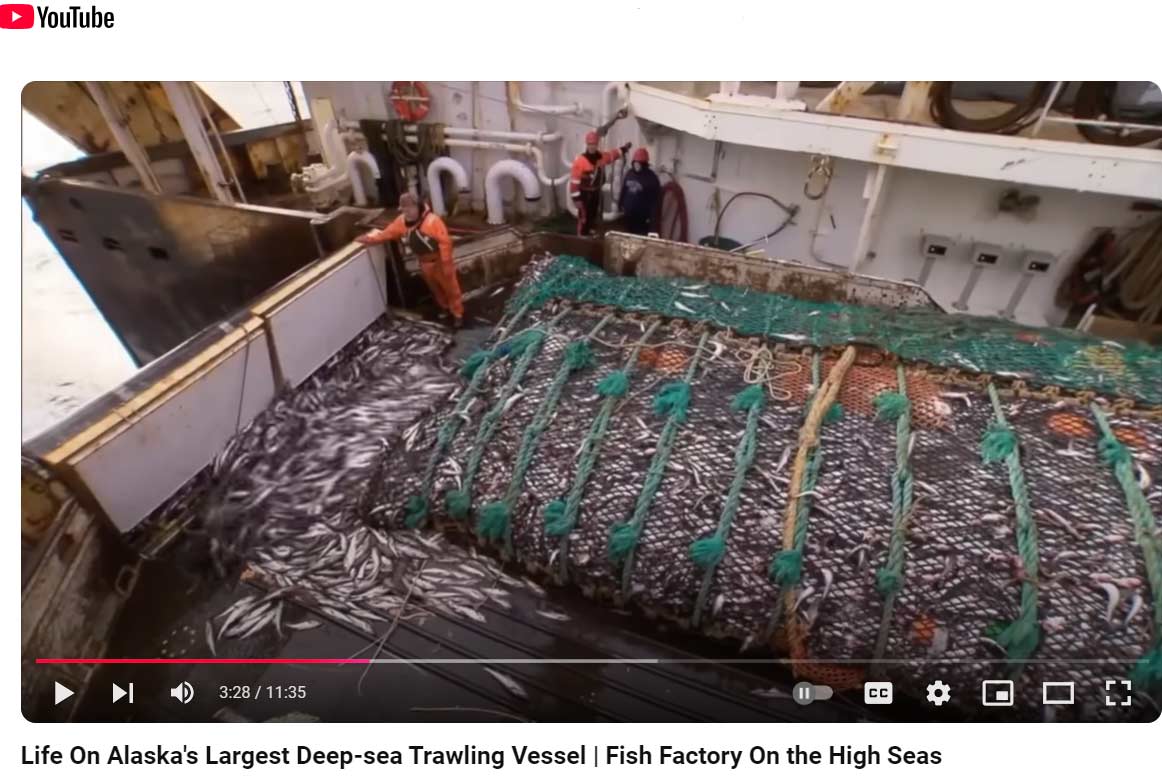
I read an article this morning in the Anchorage Daily News that documents the closure of the Kodiak-based pollock fishery in the Gulf of Alaska, because they caught 2,000 King Salmon as bycatch. When I first read it, this article pissed me off. The more I think about it, the more pissed off I get. I’m sorry, I may have to go back and edit this article to conform to journalistic standards, or I may not; as I write it, I am angry, and justifiably so.
The ADN article tried to present a balanced perspective, noting how the closure of the fishery will impact the vessel owners and the people that work in the processing plants in Kodiak and how it was unfortunate that this had to happen.
The article’s little underreported nugget of information was that the trawler fleet in the Gulf of Alaska is permitted to catch 18,000 King Salmon annually. It emphasized how the large number of King Salmon caught all in one day might negatively impact the pollock fishery. The article stressed the harm to the trawler fishery but skipped right over this important fact that large numbers of King Salmon are killed in the process.
For people reading this blog, it might help to understand the relative importance of pollock and King Salmon fisheries. Pollock is not individually a valuable fish. Trawlers that catch them are large ships that tow nets either in mid-water or along the bottom of the ocean, indiscriminately catching whatever fish reside there. Imagine a large ocean-going vessel towing a cone-shaped net 600 feet long. That is a trawl fisher. These vessels primarily target pollock, a low-value fish with white flesh that is unimportant to subsistence or sport fishermen in Alaska. Critics will respond that the tonnage of pollock caught is large and the total fishery value is high.
If you like industrial fishing practices, that may be true, but I toss back every pollock I accidentally catch when I am out on my boat. The trawl fishery for pollock exists because some people down in America like to eat frozen fish sticks, and pollock is where they come from. Most Alaskan’s don’t care if there is a trawler fishery and are probably happy it brings processing plant jobs to coastal communities.
Salmon is a different matter entirely. Salmon is a high-value fishery in this state. Many different user groups rely on salmon. There are five species of salmon in Alaska, and all of them provide value to residents here. I have personal friends who fish commercially for red and pink salmon. I know guides that fish for silver, red and King Salmon. Salmon benefit thousands of residents in the coastal communities of Alaska far more than pollock. Even the Gortex-wearing tree huggers that come here to go on bear-watching tours benefit from salmon in the streams that the bears eat. For every person that benefits from the pollock fishery, 20 people benefit from salmon in one form or another, either at the commercial harvest level, recreationally and subsistence fishers, or in the tourism industry.
Of all the salmon species, the largest and most prized by subsistence and sport fishermen is the King Salmon. When a trawler indiscriminately kills 2,000 King Salmon in one day and is permitted to kill over 18,000 of them in a season, that is a big deal to a large number of fishermen in this state.
To give you an example of the scope of this problem, the largest King Salmon in the world spawns in Alaska’s Kenai River. This fish is highly prized, and fisherman come from around the world to try to catch one. A large industry caters to these visitors, with businesses built on fish guiding, hotels and lodges, restaurants and bars, etc. Thousands of people living on the Kenai Peninsula benefit from the returning King Salmon.
The Alaska Department of Fish and Game (ADFG) reports that the average annual escapement of King Salmon on the Kenai River for the past 2 years has been below the minimum acceptable, at just over 14,000 fish per year, despite a target of 30,000 fish. The run of King Salmon on this river is less than half of what is optimum and has been depressed for years.
ALASKA WATCHMAN DIRECT TO YOUR INBOX
Sport fishing for King Salmon on the Kenai was not even allowed this year, and neither was fishing for them in the ocean along the coast of the Kenai Peninsula, where many people fish. The ADFG took this action to ensure the maximum possible King Salmon escapement to the Kenai, which was still below the target level. Individual sportsmen couldn’t fish for Kings, the guides couldn’t take clients out to fish for them, and the other businesses, like lodges, restaurants, etc., suffered because of the low numbers of returning King Salmon.
The ADN article reported that although some of the 2,000 King Salmon caught by trawlers were from streams like the Kenai River in Southcentral Alaska, most of the King Salmon bycatch was from rivers in Southeast Alaska, Canada, and the Pacific Northwest, as if it is ok to screw the people in those regions. Maybe the editor of the ADN thinks it is ok because these people do not subscribe to the Anchorage Daily News.
This situation has gone on long enough. It is no longer acceptable for the high seas trawl fleet in the Gulf of Alaska and the Bering Sea to deplete our King Salmon fisheries. It is time to restrict the so-called bycatch of King Salmon in pollock trawls. Permitting even one King Salmon to be caught as bycatch is no longer acceptable. The Alaska legislature must address this issue and interact with the National Marine Fisheries Service, which regulates fishing in federal waters outside our state’s 3-mile limit. Local politicians wishing to win election in November should highlight this issue as part of their campaign.
Our one job as humans on this planet is to be good stewards, and we are failing in that respect.
The views expressed here are those of Greg Sarber. Read more Sarber posts at his Seward’s Folly substack.









6 Comments
“Our one job as humans on this planet is to be good stewards, and we are failing in that respect.” WOW. Do ya THINK???
What happened to all the bycatch I wonder? Did the fishery keep it or was it distributed to all of the residents of Alaska that intended on fishing, but couldn’t because the season was closed because off the low returns? If the bycatch was sold, was the money distributed to the guides who lost clients?
The bye bye catch rules are in need of serious scrutiny in light of perennial low returns at many of our fishing regions. It also appears Seattle is closer to Juneau than Alaska
didn’t dumbleavy appoint his unqualified “conservative” leftist friend talk radio show host mike porcaro to lucrative position overseeing the department of fisheries? Put these idiots on trial before the people! Not the crap we have as judges!
As much as I appreciate your representation of the Trawlers vs. other fishery platforms, let’s be clear about the Cook Inlet Fishery. Although — “Sport fishing for King Salmon on the Kenai was not even allowed this year, and neither was fishing for them in the ocean along the coast of the Kenai Peninsula, where many people fish” — the Cook Inlet Eastside Setnetters have been shut down early in 2021, 2022 (32 kings caught from Ninilchik to roughly Nikiski area) and completely closed 2023, and for 2024 allowed to fish commercially with 5′ dipnets (joke). These ‘family businesses’ have been shut out, not allowed to ‘commercially’ fish for ANY species.
Let’s be fair ‘across the board’ and have everyone do their part to minimize the demise of the King Salmon before we ruin the Kenai and Kasilof rivers for any kind of runs due to the MAJOR over escapement of reds which is what the Eastside Setnetters target to feed more than themselves, but the nation and others. Many of these small businesses are family-owned and operated and have been in business for 4 generations / over 50+ years — many giving back financially in their local communities. Shouldn’t these folks have a chance to fish just like many of those wanting to in Southeast, the Kuskokwim areas, etc.? Small business is still the backbone of our country. The over escapement is rarely addressed and it should be just as much of a consideration while trying to protect the king salmon runs.
If looking at the Legislature, also look at those appointed for important fishery positions and hold these people accountable for the lack of fishery concerns or poor management, lack of education or training while trying to pander to those that fill their pockets.
But, at the end of the day, it’s a good thing the pollock fishery closed due to king salmon by catch, right? This was a step in the right direction?